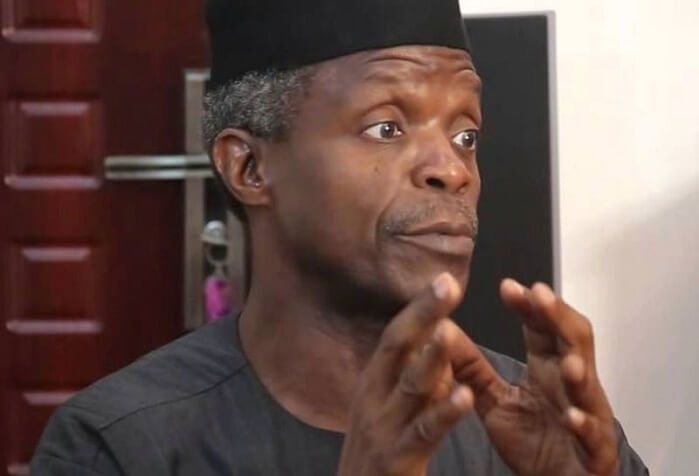
Vice President Yemi Osinbajo has said that nearly 42% of Nigeria’s population lack access to clean water supply.
According to him 110 million others do not have access to adequate sanitation, which has resulted in high rate of child mortality in the country.
The Vice President said this at the launch of the water and irrigation policies, developed by the federal ministry of water resources as well as unveiling an initiative of the ministry tagged ‘Partnership for Expanded Water Supply, Sanitation and Hygiene’ (PEWASH) in Abuja on Monday.
Advertisement
“It is also a well-known fact that Nigeria did not achieve the targets of the Millennium Development Goals – MDGs for water and sanitation.
“Some of the reasons adduced for this include primarily, the lack of effective coordination among stakeholders and the inability to harness the required funds.
“There are about 66 million Nigerians without access to safe water and 110 million without adequate sanitation. Consequently, about 150,000 children under the age of 5 die annually from diarrhea-related diseases that are mostly traceable to unsafe drinking water.
“The situation is even more depressing in the rural areas where polluted ponds and streams remain the only source of water for drinking and other household chores.
Advertisement
“This trend must change,” he said.
Osinbajo further tasked all key players in the water sector to join forces with the present administration in other to achieve the country’s water sanitation targets.
Unveiling the country’s policy documents on water sanitation and irrigation, Professor Osinbajo said that improving water sanitation and hygiene in all parts of the country would improve the living conditions of the people.
“Despite the fact that we all seem to agree that water is life and critical to human existence, it is amazing how lightly we take issues of water management.
“Excess water or insufficient water not properly managed is devastating to both man and environment,” he added.
Advertisement
The VP explained that the Ministry of Water Resources had concluded work on the national water resources policy and the national irrigation policy and both had been approved by the federal executive council.


